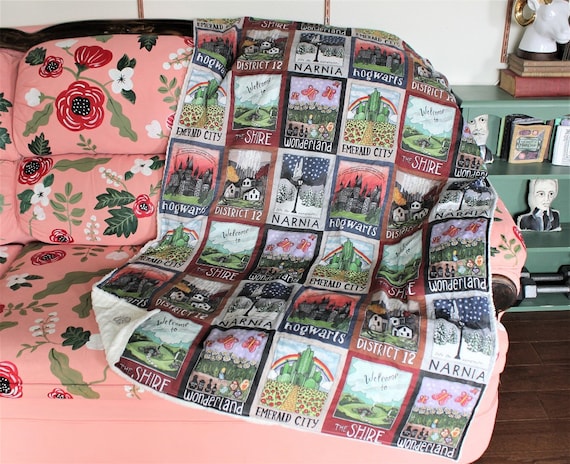 |
| I am Thunder |
Keep an eye out for this one guys, because I think it maybe possibly might just go places.
There’s a bit of a trend in YA fiction at the moment to tell
stories that mean something; that have relevance and carry a message and that
are capital letter Important and I love
that. All the diversity all the time please – I think I’ve talked about it
before, about how important it is to write these books for the people who need
to read them and maybe I’ll come back at some point and really talk about that,
we’ll see, but for now: the world needs more books that aren’t afraid to shy
away from the things we need to talk about, that will make those minorities
feel less alone and that will make the rest of us check our white privilege.
I Am Thunder is
one of those books, relatable to and relevant and actually so so important.
It’s also kind of brave, I thought, because this is such a taboo subject – it shouldn’t be and the fact that it is part
of the problem, but still it is. I Am
Thunder doesn’t care about any taboos; I
Am Thunder understands that the fact that people are scared to talk about
it is exactly why we should be talking about it. I kind of want to give Muhammad Khan a high
five because UKYA is crying out for books like this, so loudly you can
practically hear it. It’s an #ownvoices story also which I think is
important to note because I doubt it would be as confronting otherwise, and I
mean confronting in the sense that it makes you sit up and listen, it makes you
think and it makes you question rather than confronting in the sense that it
attacks. Does that make sense? It does in my head.
Anyhow. The deal.
It’s set right now, in present day Britain and it’s the story of Muzna, a teenage
girl who is also a Muslim and it tackles race and racism and discrimination and
at the same time because this book, as I said, is brave, it’s talking about extremism and grooming and how it could
be that an intelligent, young, entirely Westernised person could end up being
radicalised.
It’s really interesting and really clever. I loved how it
painted this picture of being caught between waking up in a morning to stories
on the news of atrocities being committed in your name and being afraid to step
out of you front door and be yourself because somehow along the way being a
Muslim pretty much become synonymous
with being a terrorist because people are stupid and something as simple as
wearing a hijab has come to represent something Bad and Awful: how all you want
to do is just study for your GSCE’s and have a crush on the fit boy in your
tutor group but you keep being on the receiving end of hate in response to a
crime that you never ever ever would
put your name to and how somehow in wanting to figure out who you are and what
you stand for and what being Muslim means for you, you find yourself in
entirely over your head and then the right people are looking in the wrong
places in the wrong way and it’s just so….it’s fucked up. Life shouldn’t have
to be this balancing act, you know? But it is, and that’s what this book is
about.
Muzna’s just your regular teenage girl in so many ways –
there’s a boy she likes and she doesn’t think she’s pretty enough and she’s
struggling under the weight of expectation – but all of this is tenfold because
she’s also dealing on a day by day basis with this inbuilt illogical racism –
people call her a terrorist just because her skin is brown and her parents are
caught in this weird place whereby they want to be British but they also want
Muzna to hold onto the values she’d be brought up with if they were in
Pakistan; where they don’t practise Islam, typically, but they call themselves
Muslim and so Muzna doesn’t quite know where she fits. It’s so sad.
Muzna’s parents want her to be a
doctor but Muzna wants to write, she wants to write books with kick ass Muslim
characters so she can maybe go a bit of a way to putting a stop to the racism
that she’s dealing with, continually. She’s lost and she’s tired and she wants to make a difference and she doesn’t know how and so when Arif – who by the way is
super hot – starts to show an
interest in her, things start to look up. Arif is nice in a world where other
people are not, he calls her beautiful when she’s spent her whole life being
ridiculed for how she looks and he gets her
– he thinks she’s smart and clever and important.
It’s a no holds barred
exploration this book, of extremism, of Islamophobia, of how there are so many
different ways to be a Muslim , of acceptance and fear and growing up and
finding your place because underneath it all, Muzna is just a kid, she’s just a
teenage girl like pretty much every other teenage girl you ever met and that’s
what gives the book the impact – you can see Muzna for who she is and you get
her, she’s real, so when you start to
see how all of this is going to pan out, it gets to you, right in the chest. I
couldn’t read the last few pages fast enough, seriously, because I could see
where it was going and I really needed it not to go there and I was so scared
and angry and sad.
Other people might shy away from
the real tough stuff but I am Thunder:
it goes right in there, right into all the dark and scary places that we all
kind of like to pretend don’t exist and it makes you look right at them. Open
your eyes, it says, because this stuff is happening every single day and we can’t keep on pretending it isn’t. We need this book – every ISIS report,
every terror attack, every story on the news that makes you sick to your
stomach means we need this book, and others like it, more and more and more.
I think it’s a strong and daring
debut and I think it’s one we’re going to be seeing quite a lot of. And rightly
so.



